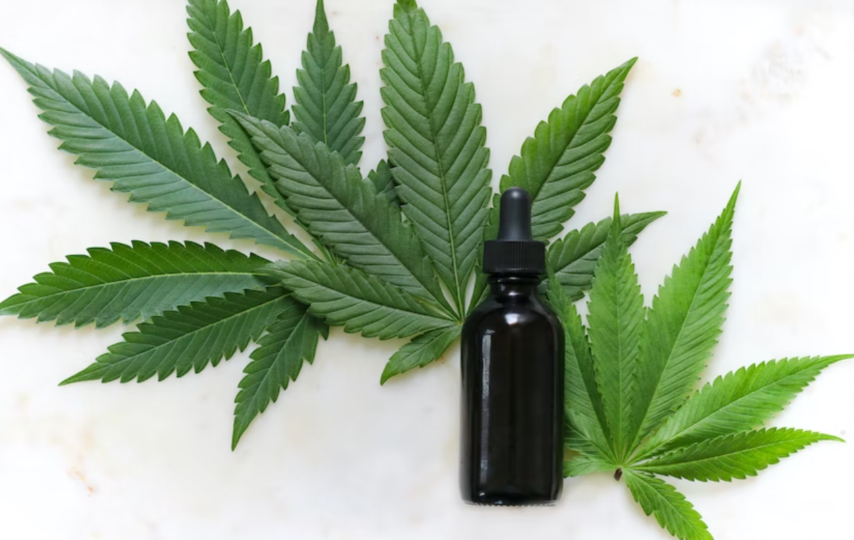CBD’s popularity has risen in the past few years, and healthcare professionals use it to treat many conditions. Scientific evidence points out that CBD may be effective for patients with inflammatory disorders, including multiple sclerosis, arthritis, and heart disease. If you experience pain or inflammation, CBD may be an effective alternative to pharmaceutical treatments.
CBD Definition
Cannabidiol (CBD) is a compound in the cannabis plant. The two main phytocannabinoids found in the cannabis plant include THC and CBD. CBD is different from THC as it doesn’t have psychoactive effects associated with THC, making it safe to use even during the daytime. CBD doesn’t get you high, making it a minimal, low-profile, and less addictive option. Some studies have shown that CBD possesses anti-inflammatory properties and can minimize arthritis pain, chronic pain, and joint pain. It can potentially strengthen our body’s immune system due to its oxidative effects. Pure CBD doesn’t get you high and has few adverse side effects. Some people may experience mild side effects, including drowsiness, nausea, and fatigue, so it’s crucial to talk to your doctor before using CBD.
Benefits of Using CBD for Inflammation
You can try alternative methods if you find it hard to function on the current inflammation treatment plan. CBD Clinicals provide patients with a wide range of information about possible medical uses of CBD products. CBD oil can potentially minimize overall inflammation, reduce symptoms, and boost your vitality and health in the long run. You may turn to medications when dealing with inflammation, but long-term non-steroidal anti-inflammatory drugs (NSAIDs) may have harmful side effects, including peptic ulcers and kidney disease. CBD products, in contrast, provide anti-inflammatory outcomes without side effects.
CBD oil doesn’t have apparent side effects but may interact with various medications you take, like antidepressants or antibiotics. Ensure you consult your healthcare professional before taking CBD products for inflammation. Don’t be afraid to communicate with your doctor regarding CBD products as an inflammation option to allow the healthcare professional to devise a solution that works in your favor.
Types of Inflammation
Inflammation is a function inside the immune system that repairs and protects the body from invading viruses, bacteria, and injury. The common causes of inflammation include radiation, pathogens, medical conditions, and external injuries. Two types of inflammation are acute and chronic. Acute inflammation occurs mainly after contracting the flu, injuring your ankle, or cutting your finger. The signs may include pain, swelling, loss of function, heat, or redness. Inflammation helps supply adequate blood to the affected area, and the pain indicates there’s something wrong, necessitating the protection of the damaged area. A lingering inflammatory response causes the body to enter a state of red alert, triggering an exaggerated immune response that may send your body into a shock. The body will respond by damaging healthy organs and tissues, like in the case of chronic pain and arthritis, causing long-term joint damage. Chronic inflammation is considered the leading cause of bowel diseases and heart disease.
Effectiveness of CBD to Minimize Inflammation
There is a science behind the interaction of CBD with our bodies to minimize inflammation. The endocannabinoid system (ECS) responds to and produces cannabinoids that play a crucial role in inflammation reduction and healthy body function. The cannabis plant has phytocannabinoids, including CBD, similar to those produced by our bodies. The primary CBD receptors include CB1 and CB2. CB1 receptors are present in the brain, whereas CB2 receptors are present throughout the central nervous system and the body. CB2 receptors regulate our immune system, which helps regulate inflammatory responses.
Chronic inflammation plays a crucial role in the progression and development of multiple diseases, indicating that CB2 function is essential for general health and minimizing inflammation. The body releases cytokines when under stress, facilitating inflammation initiation and continuation. CBD products help disrupt this immune response, which prevents inflammation from happening in the first place.
How to Intake CBD for Inflammation
CBD comes in multiple forms. Experts collect it in the form of hash or resin and even suspend it in oil. CBD is often sold as an oil, capsules, topical products, or added to edibles like cookies or gummies. It’s sometimes used as a vape oil that most people smoke. There are multiple CBD products in the market, but most are unregulated, necessitating the need to research before buying them. Pure CBD products should contain at most 0.3% THC to minimize the risk of psychoactive effects. Purchase CBD products from a reputable dealer and take the correct dose depending on the nature of your inflammation. Consult a medical professional to advise you on an ideal amount for your swelling
The amount of CBD you should intake depends on your inflammation level. It would help if you considered using a medium or high-strength CBD dosage to treat chronic inflammation like autoimmune or bowel diseases.





